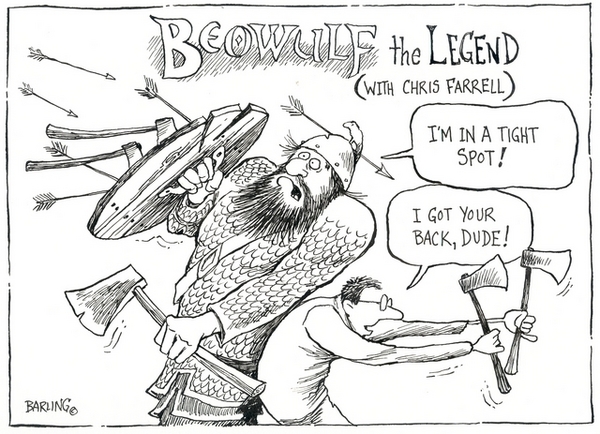"Power corrupts, and absolute power corrupts absolutely." - Lord Acton
To what extent would Shakespeare agree with this statement? Use the play and your own experience as your support.
In my opinion this quote is an idiom that means who holds unchecked power or
authority is
likely to
become corrupt or
abuse one's position. Do you guys remember the Jane Erye story and how Mr. Brocklehurst had complete control over the school and the people in it? Do you remember how evil and corrupt the man was to the teachers and children? Well, he is a perfect example of this quote. He misused his power and treated those underneath him like they were worthless and stupid. He abused his position because he could and no one could stop him.
Throughout acts 1-3 in the play Macbeth, written by Shakespeare, the desire for absolute power is the main driving force for the two main characters, Macbeth and Lady Macbeth. They are consumed with a thirst for complete rule, and are willing to achieve it by whatever means necessary. Power had corrupted the thoughts, actions and behaviors of Macbeth and Lady Macbeth, and as a result of their greed, selfishness and strong desire for the crown, they will soon find out that they are unable to escape the tragic fate at the end of the play that was a result of their own doing.
In the beginning of the play Shakespeare makes Macbeth a celebrated, brave soldier who's loyalty lies with the king (Duncan) and is trusted, as well as respected by him. Unfortunately, his down fall begins when he is greeted by three weird women (witches) who tell him a prophecy. This prophecy says that Duncan will become Thane of Cawdor. As Lady Macbeth learns of this we see that her desire for power starts to break free and we see her start to become corrupt. She right away wished this prophecy to come true. Her longing for power and wishes to be a queen drove her thoughts and feelings to be very corrupt and cruel. An example of her corrupt thoughts as a result of the desire for power is evident upon her reaction to her husband’s letter. She tells Macbeth that they must kill king Duncan for the prophecy to come true, but she fears that her husband’s nature is too pure and that he doesn’t have enough ambition to commit the crimes necessary to fulfill it. She says, "Art not without ambition, but without the illness should attend it. what thou wouldst highly, that wouldst thou holily; wouldst not play false (page 31, lines 19-22).” This quote shows that Lady Macbeth is willing to “play false” or act in corrupt ways to attain the power she wants.
In Act two of the play Duncan is killed and Macbeth becomes the Thane of Cawdor, as predicted by the three witches, whose scheming helps drive Macbeth’s ambition and ultimately transform him into a murderer and tyrant. How much of a push Macbeth needed to turn to murder is not clear, but the word of three mysterious women appears to be enough to drive him to kill. Our perception of Macbeth as a brave soldier is further eroded when we see how easily he is manipulated by Lady Macbeth. Lady Macbeth was the driving force behind Macbeth, telling him to go over the edge and fulfil his prophecy. Throughout the play the idea of her being powerful takes over and she does what ever is necessary to make sure Macbeth follows through with their plan. She is there every step of the way telling him he deserves the crown and that he must not be a coward. When Macbeth finally killed Duncan he is suddenly overwhelmed with ambition and self-doubt. Although he constantly questions his own actions, he is also compelled to commit further atrocities in order to cover up his previous wrongdoings. The moment he became king he ordered three murderers to kill his best friend Banquo, along with his son. Shakespeare writes this because he wanted to show how Macbeth's need for power and lust was leading him to do unthinkable things.
In conclusion, Shakespeare's whole play surrounds Macbeth and Lady Macbeth's search for power. Shakespeare starts off with why they want it and how they plan to attain it, and through this we see their characters change and evolve into power thirsty humans. By Act 3 Shakespeare writes about their come to power and what they currently are doing with it, and through this we see that ultimate power does make the person in authority abuse it and become corrupt. This as lead me to believe Shakespeare would definitely agree with this quote by Lord Aron.
Well guys, you could take this either two ways. One, power is the root of all evil and leads to unimaginable things, or, having power can gives you great benefits like being able to ask for anything and it get done. If you believe in the second way I hope you are ready to handle the soul-crushing internal guilt that comes as a result.

